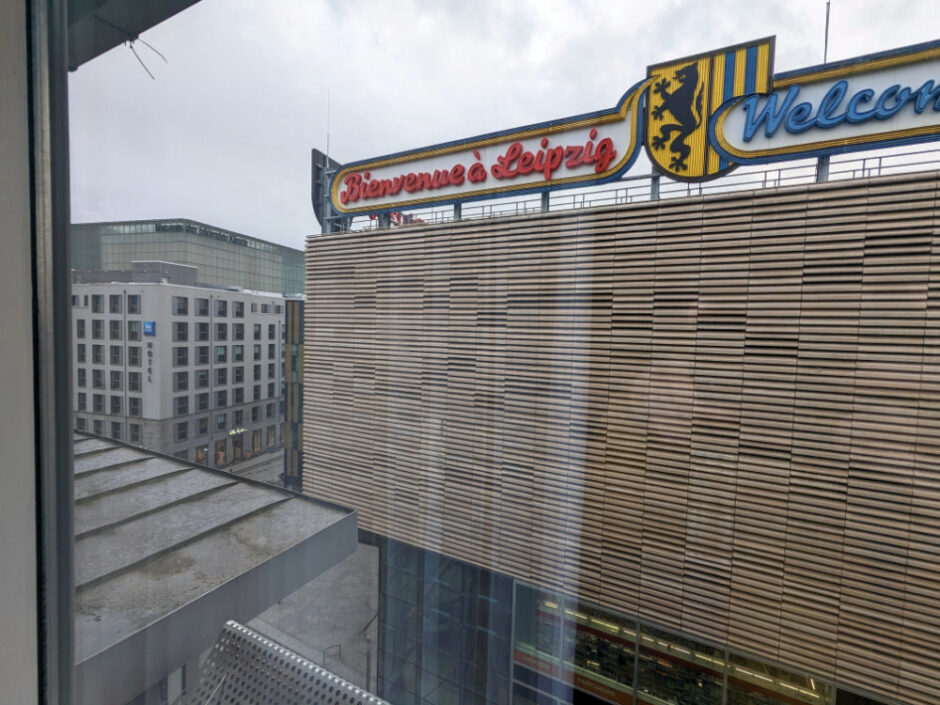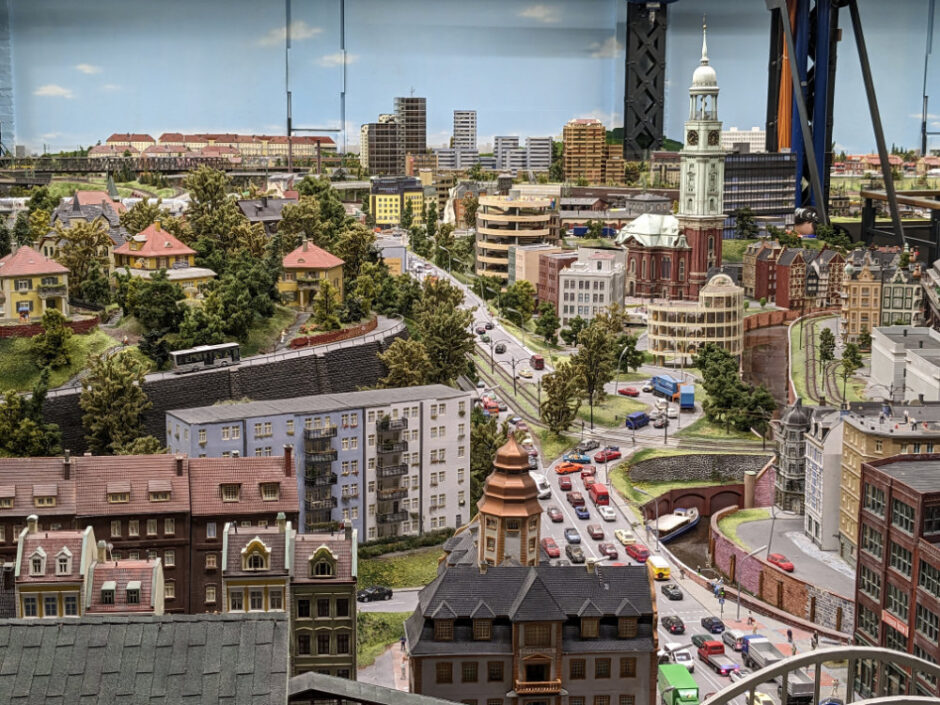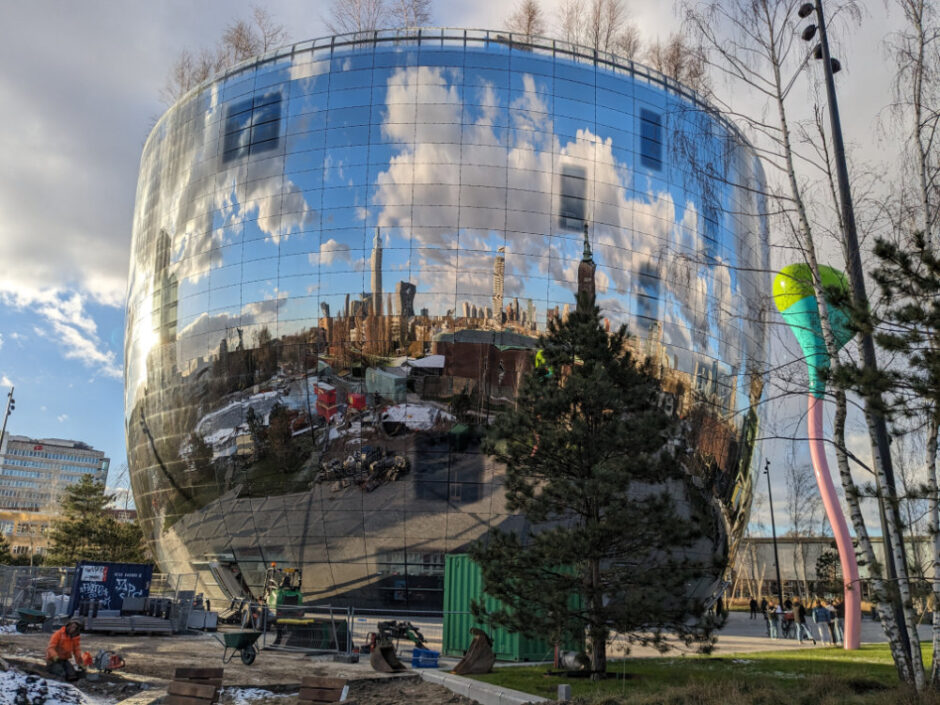We went back to Europe for the first time in two years, and really for the first time since COVID. We made stops in Germany (countryside, Berlin, Hamburg, Dresden and Leipzig), London and Rotterdam. Not counting the two COVID sojourns in 2020 and 2021, we last lived in Europe in 2012. The distance–mental and physical–is clearly having an effect on how I perceive this part of the world, my “home”, or is it? It was a blast to be back. Some memories and observations for the record.
For most of our time in Germany, we stayed in the countryside with my parents. It was the first time we returned since our COVID stay here. To some extent, this trip was about “re-programming” the place in our brains, from the COVID memory of feeling “stuck” here (altogether about 11 months) to a normal, more positive tone.
We went to Potsdam and Berlin for the days before and after new year’s eve. Berlin usually looks worst around this time of the year. Coupled with train cancellations and industrial action, the city gave off the impression that nothing works, and that the place is going to shits.
But Berlin has always been a little rough around the edges, and when younger, one tends to overlook these issues. This time, with a kid in tow, the amount of homeless people near our place on Rosa-Luxemburg-Platz was distressing.
The glass is half full perhaps: One of my buddies from university moved to Berlin a few years ago from London, and he appreciates Berlin’s informality compared to London’s almost complete transformation into techno-feudalism.
I guess while these are universal phenomena, cities are on a spectrum. The old heights of counterculture attached to physical space seem long gone. There are fewer gaps in the cityscape, with most empty spaces filled up with new residential developments.
The subversion of organizations like the CCC has made space for the cooptation of tech-savvy people into the world of (fin-)tech startups–although the general tech vibe still aspires to be edgy.
In hindsight, though, I feel bad for being so critical about Berlin while we were there. I am sure the city will get many more chances at showing itself from a better side–perhaps in the summer, perhaps with a cultural itinerary of sorts and evoking more pleasant memories. Then there will be more reference points that make the relationship to the city feel alive and not just conserved in time.
 We also went to visit friends in Leipzig and Dresden. The former was our home for a few months in 2021. Albeit short, the time there felt like a major emergence from the isolation of the COVID days. This definitely helped the city shine in our eyes. But again this time, it felt very pleasant here. The city’s more conservative neighbor, Dresden, is also always worth a visit. Both have about half a million inhabitants, maybe the sweet spot for a European city.
We also went to visit friends in Leipzig and Dresden. The former was our home for a few months in 2021. Albeit short, the time there felt like a major emergence from the isolation of the COVID days. This definitely helped the city shine in our eyes. But again this time, it felt very pleasant here. The city’s more conservative neighbor, Dresden, is also always worth a visit. Both have about half a million inhabitants, maybe the sweet spot for a European city.
And still, of all the places we have been to, London is the one that feels most like home, surprisingly perhaps. It’s probably because we went to university here and have a good contingent of friends (a lot of them mutual) here, many of whom we have stayed very close with and who have visited us in the far-flung corners of the world.
 I also engaged more with the city here, e.g., via a sightseeing tour with my daughter, meeting friends in town and going on long walks through our old stomping grounds in the east. I also managed to sneak in a visit to one a friend’s office: He works at the Bank of England–and gave me a tour of the building that I had never seen from the inside.
I also engaged more with the city here, e.g., via a sightseeing tour with my daughter, meeting friends in town and going on long walks through our old stomping grounds in the east. I also managed to sneak in a visit to one a friend’s office: He works at the Bank of England–and gave me a tour of the building that I had never seen from the inside.
London is a cultural bastion, and funnily enough, we managed to reconnect with Japan right here: We went to the Tate Modern and saw Yayoi Kusuma’s mirror rooms. We also went to see the Totoro musical in the Barbican (which was simply out of this world and brought us all to tears).
For Europe at least, London seems like the apex of the real estate state, or the commodification of living space (Sydney, perhaps, is the southern hemisphere’s starkest example). The seemingly generic cycle of redevelopments and gentrification, of “nice” and “up and coming” areas where state primary school kids are more likely to be homeless than not, is not something I have to lay out my opinion about here, but is most in your face in this city.
I was shocked to see most if not all of the council estates in exactly the same condition as when I left London more than 10 years ago (with the occasional re-cladding following the Grenfell Tower fire; but that’s a different story).
From mu observations over the two weeks we were there, the city has clearly progressed on the path of precarity, for too large a part of its population. Ben Judah’s excellent book on London’s immigrants is almost 10 years old by now, and I remember being shocked as to how bad it was back then. How bad must it be today?
It does affect me to see this, another sign perhaps of how close to my heart the city is. This time though, I felt less inclination to analyze this through a journalistic lens if you will, also because with a kid in tow, you look at the world also through her eyes and just want to be in a nice place with proper playgrounds and working public transport.
We went on a short trip to Rotterdam to connect with friends over there. The Dutch city was probably the most “orderly”. Holland feels a little bit like home–my wife is Dutch and I lived here for four years until 10 years ago. I was in the Hague and Groningen, so Rotterdam is still new to me. This is a city definitely punching above its weight. The port, its architecture, music and arts, have made this a very global place indeed.
Oh and we also went on a short and sweet trip to Hamburg to see friends there. In lieu of proper sightseeing in this lovely but melting-snow-covered city, we visited the Miniatur Wunderland.


